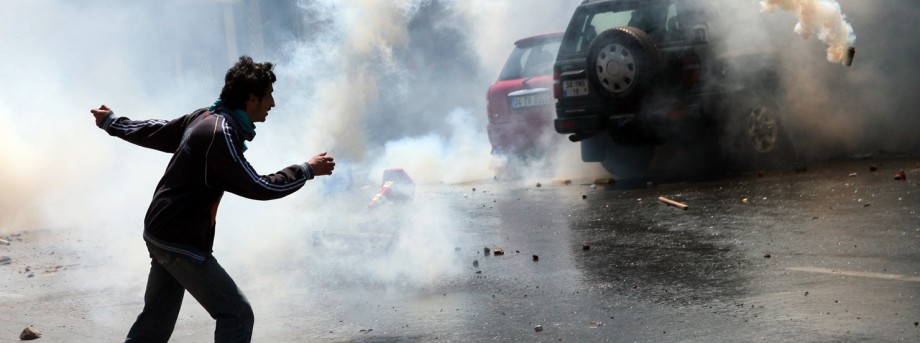The University of Nottingham
 Exchange online
Exchange online
Research Exchange
Tackling corruption across the EU and beyond

Phone hacking, sleaze and cash for questions — corruption in our systems of governance and public bodies has eroded faith in politicians and other senior public figures over recent years. The UK sees its political class as untrustworthy, to the detriment of our economic prosperity, life satisfaction and levels of political engagement.
New research taking place at The University of Nottingham is set to tackle this perception of poor governance, as part of a European Commission research programme into the factors which promote or hinder the development of effective anti-corruption policies. The €7.9m Anticorruption Policies Revisited: Global Trends and European Responses to the Challenges of Corruption project will investigate the causes of corruption; how corruption can be measured; and the impact of corruption on different aspects of human well being.
The project spans 21 research partners across 16 EU countries, and is led by the Quality of Government Institute in Gothenburg, Sweden. Paul Heywood, Dean of the Faculty of Social Sciences and Sir Francis Hill Professor of European Politics at the University, will lead one of the UK-based partners.
With colleagues from the University of Birmingham, he will focus on:
- corruption and good governance from both a global and continental perspective
- accountability and transparency in both civil society and administrative responses, as well as accountability mechanisms within policy performance
- translating the research into evidence-based policy
“Corruption is one of the biggest issues facing governments around the world today,” said Professor Heywood. “The Arab Spring was driven by citizen discontent with corrupt governments, and public perception of corruption is one of the biggest challenges for the Chinese government.
“It’s a problem in both developed and developing countries, damaging the economy, diverting resources, affecting confidence and trust in politicians — people see no value and no point in being engaged in the political process.
“Not only will this project examine the causes, measurement and analysis of corruption, it will translate the research into concrete, evidence-based policy suitable for use across governments and public bodies worldwide.”
Tags: corruption, EU
One Comment
Leave a Reply
Other

Top prize for quantum physicist
A University of Nottingham physicist has won a prestigious medal from the Institute of Physics for […]

Zero carbon HOUSE designed and built by students comes home
Design and construct a low cost, zero carbon, family starter home, transport it to Spain, build […]
August 25th, 2013 at 6:20 pm
Siddhartha Bandyopadhyay
If we seriously desire for a corruption-free society, decent political atmosphere, need to put genuine commitment at our own end – as you know most of the communities (such as Bengali or Telugu) in this sub-continent are clutched by ‘Culture of Poverty’ (hopelessness), irrespective of class or economic strata, lives in pavement or apartment. Nobody is ashamed of the deep-rooted corruption in this society by heart, decaying general quality of life, bad Politico-Governance, poor work place, weak mother language, continuous consumption of common Social Space. We love to become parents only by self-procreation (mindlessly & blindfold supported by lame excuses) depriving their(the children) fundamental rights of a caring society, fearless & dignified living. Do not ever search for other positive alternative gesture/values to perform human way of parenthood, i.e. deliberately stop giving birth to any child him/herself here till it improves up to the mark, co-parenting children those are born out of extreme poverty, instead. We all are driven only by the very animal instinct. If a pure freedom is desired, from vicious cycle of poverty, rotten capitalism need to involve ourselves in ‘Production of Space’ (Henri Lefebvre) movement, one big passion to override our inherent ‘hopeless’ mindset, quality Politics would certainly come up. – SB, 16/4, Girish Banerjee Lane, Howrah -711 101, India.